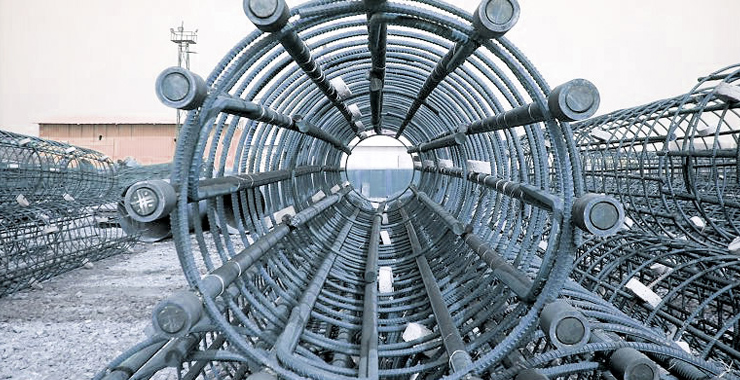
MANILA — The booming infrastructure activities in the Philippines supported the increasing production of the SteelAsia Manufacturing Corp., the country’s largest steelmaker.
SteelAsia reported that the reinforcing steel bars’ production of its six manufacturing facilities in the country has breached the one million-metric ton (MT) mark from January to June 2018.
SteelAsia said its total production grew 11 percent in the first half of 2018 at 1.023 million MT of rebars from 925,503 MT in the same period last year.
“We are fortunate to be able to ride on the current infrastructure boom. With sustained economic growth, we believe that SteelAsia along with the whole steel industry will also continue to grow and serve more customers,” SteelAsia chairman and chief executive officer Benjamin Yao said over the weekend.
Of its six production plants in the country, the Meycauayan facility produced the largest number of steel in H1 2018 reaching to 271,329 MT. These were supplied to Metro Manila as well as Central and Northern Luzon.
Output of its Davao mill accounted for 257,032 MT of the total production, while its facility in Calaca, Batangas manufactured some 255,174 MT.
SteelAsia’s second mill in Meycauayan City in Bulacan, Carcar, Cebu, and Villanueva, Misamis Oriental accounted for the balance of the total rebars produced in the first semester of the year.
Moreover, Yao mentioned that the company has started the construction of its seventh steel mill in Compostela, Cebu as part of its five-year expansion plan in the country.
SteelAsia is investing PHP100 billion for the said expansion program.
Aside from the plant in Cebu, Yao added that SteelAsia to kick off the construction for another two facilities in central and southern Luzon.
“We are deliberately bringing our plants closer to our customers. That way, we can give our customers the best price and service with just-in-time delivery and at the same time, help create more jobs for our people in the countryside,” Yao said.
“These investments are focused on basic sectors to substitute imports and create linkages to support infrastructure development and downstream industries,” he added.